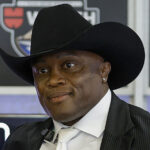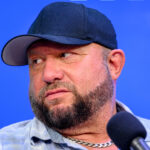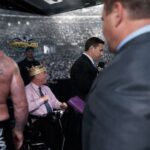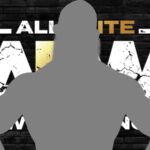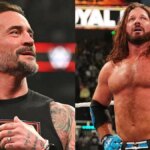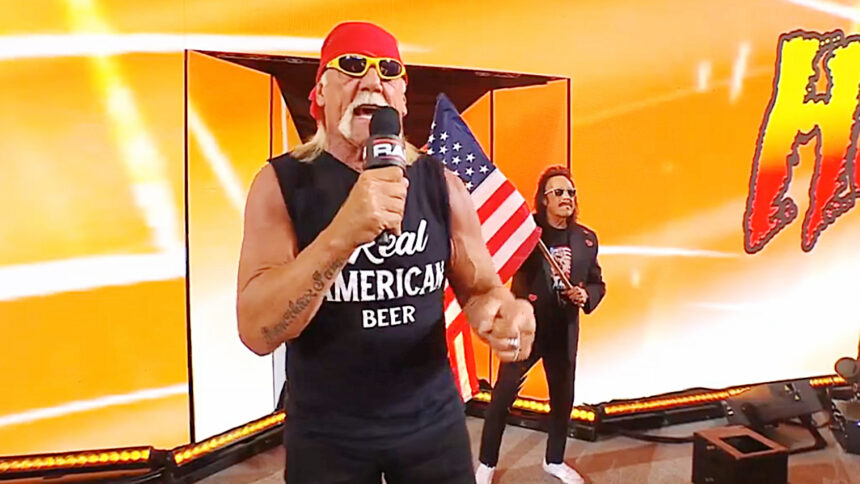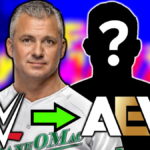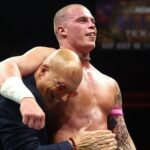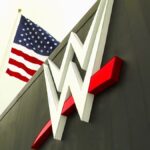Dwayne "The Rock" Johnson was recently questioned about the challenges of navigating Hollywood and maintaining A-list status, especially as many others have faltered, often ending up with the less successful DC film projects. Johnson replied that his experience navigating the highly political arena of professional wrestling made Hollywood easier to handle. This background likely prepared him well for his film career transition, much like other wrestlers-turned-politicians such as Glenn "Kane" Jacobs and Jesse "The Body" Ventura.
Johnson has political aspirations and once considered running for president, even attending the 2000 Republican National Convention during his wrestling peak. Despite being politically aware, he differs greatly from Hulk Hogan’s approach to politics. Hogan, who passed away at 71 due to a heart attack, became a cultural icon after starring in Rocky III and led the World Wrestling Federation to national dominance. He maintained his status through his charisma and tough backstage tactics.
However, as his career peaked, Hogan’s reputation suffered from racist audio recordings that surfaced. Known best as a heroic figure, Hogan later shocked fans by becoming a villain as part of the New World Order faction, a storyline that gained widespread media attention. Hogan broke numerous records in the WCW, transforming it into the most profitable wrestling promotion at the time before it eventually folded due in part to his political disputes.
While Hogan’s television persona inspired generations, his controlling backstage behavior and politics harmed the wrestling business. His backstage tactics created tension but also made him a top earner. As the wrestling world evolved and new stars emerged, the effects of Hogan’s dominance became apparent to both wrestlers and fans.
Bret Hart famously confronted Hogan in 1993 after Hogan abruptly won a title in a controversial fashion, leading to tensions between the two. A scheduled match between them at Summer Slam fell apart after Hogan refused to lose. Hogan exercised creative control in WCW, protecting friends and favoring older wrestlers over emerging talent like Steve Austin.
Kevin Sullivan introduced the cartoonish villain group Dungeon of Doom, many of whom were Hogan’s friends. Hogan clashed continuously with Ric Flair in WCW, while Flair allied with rising stars such as Arn Anderson and Brian Pillman—the latter known for his wild and controversial persona. Although Hogan showed interest in Pillman, the latter chose to join WWF.
Hogan’s control over WCW’s creative decisions often caused confusion on their flagship show, Monday Nitro. Despite WCW’s successful cruiserweight division, WWF launched a counter heavyweight title that attracted young talent away from WCW by 1999.
Sting, WCW’s biggest star, returned for a high-profile match with Hogan in 1997, but the match’s controversial booking and Hogan’s politics worsened WCW’s decline. An infamous match featuring referee Nick Patrick did not go as planned, with Hogan winning in a way that undermined the storyline and Bret Hart’s interference. Hogan repeatedly managed to dominate both wrestlers and the company simultaneously.
One of Hogan’s most notable losses was to Bill Goldberg in front of 40,000 fans, which skyrocketed Goldberg’s career. Hogan later criticized Goldberg’s lengthy championship reign on CNN’s Larry King Live, sparking anger from Goldberg, who was recovering from knee surgery. This public conflict highlighted ongoing backstage issues in WCW, despite Hogan facing little discipline.
Fan Take: This detailed retrospective on Hogan’s complex wrestling legacy offers WWE fans a deeper understanding of how backstage politics and personal dynamics can shape the sport. For fans, it underscores the importance of fresh talent rising and the ongoing struggle between business control and creative freedom that continues to impact wrestling today.


